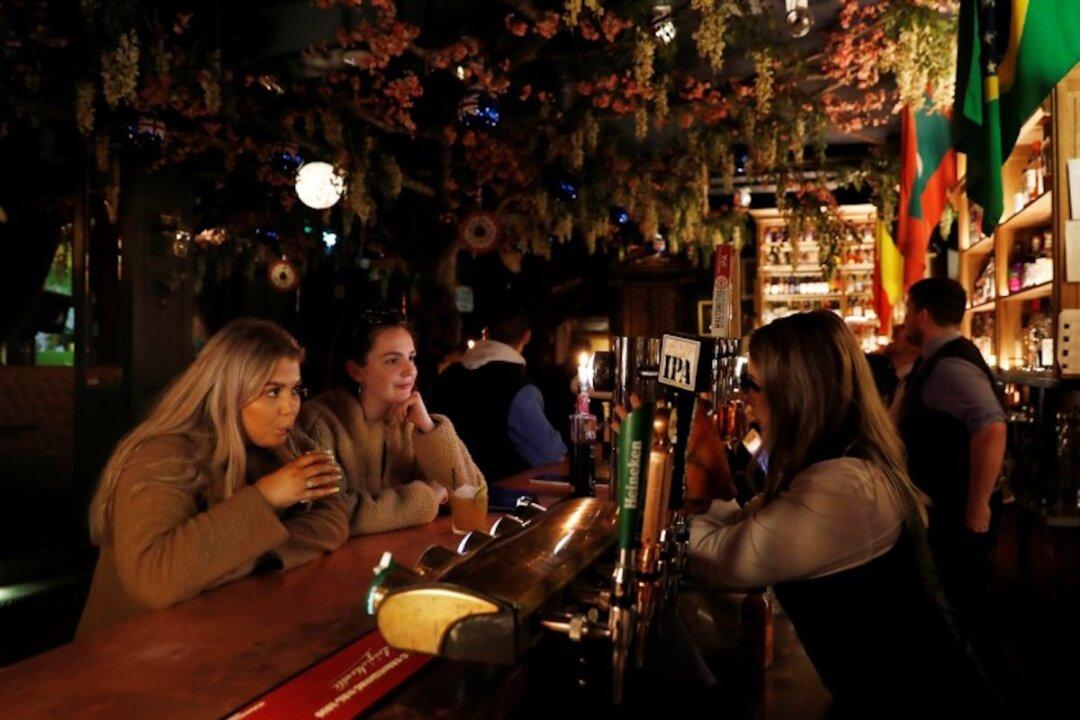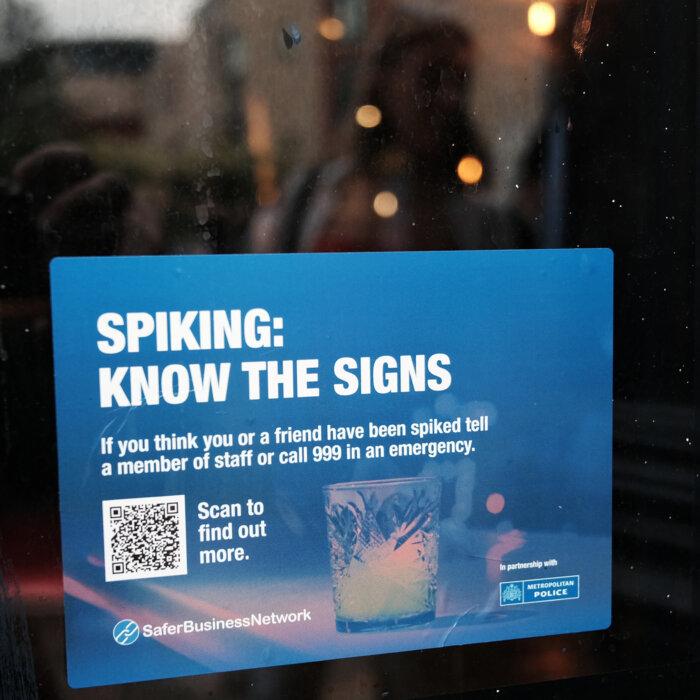Bar staff are to receive training to spot and tackle spiking under government plans to halve violence against women and girls.
Up to 10,000 staff in pubs, bars, and nightclubs will be trained with the skills needed to prevent spiking incidents and support victims and help police gather evidence.
The government pledged on Monday to pilot the training scheme from December, expanding it across the country by spring next year.
Spiking, or giving someone drugs or alcohol without their knowledge or permission, can cause victims severe distress, nausea, memory loss, and blackouts. The recovery from spiking can take a long time.
According to the Metropolitan Police, most cases of spiking, including drink, needle, vape, and food spiking, don’t result in sexual assault or theft.
But the National Police Chiefs’ Council Violence Against Women and Girls Strategic Programme Director Samantha Millar said that raising awareness about spiking will improve feelings of safety for women and girls.
Police forces carry out regular, targeted patrols of busy town centres and licensed venues to ensure that night economy staff understand how to support victims, Millar said.
“Spiking is a complex offence to investigate as drugs can pass through the system quickly and there is often a lack of evidential opportunities, which is why quick reporting and early evidence gathering, including forensic testing, is key,” she added.
Home Secretary Yvette Cooper said that “people shouldn’t have to worry about the safety of their drinks on a night out.”
Nik Amplianitis, who has been working in hospitality for 20 years, including in London, told The Epoch Times that he has witnessed several incidents of spiking.
“Once the bar staff saw what happened, we wouldn’t let the young women whose drinks were spiked, leave unaccompanied or be taken home by someone other than their female friends,” he said.
Amplianitis said that a training scheme would be helpful in raising awareness among bar staff.
“It’s not often that it happens, so people tend to forget to be on the lookout for spiking,” he said.
Chief Executive of UKHospitality Kate Nicholls welcomed the roll out of a nationwide training programme.
New Criminal Offence
New training for bar staff is part of a coordinated response by the government, with plans to make spiking a new criminal offence.Labour pledged in its manifesto to introduce a new criminal offence for spiking.
On Monday, Prime Minister Sir Keir Starmer confirmed the plan, which the government said will “send a clear signal” that spiking is a crime, and perpetrators should feel the full force of the law.
“My government was elected on a pledge to take back our streets, and we will never achieve this if women and girls do not feel safe at night.
“Today, I will bring together police chiefs, heads of industry, and transport bosses to demand coordinated action to stop women being targeted, whether they are out with friends or simply travelling home.
“Cracking down on spiking is central to that mission,” Starmer said.
Minister for Victims and Violence Against Women and Girls Alex Davies-Jones said, “Christmas should be a time for celebration and community but all too often perpetrators of vile crimes like spiking take advantage of festivities to target women and girls.”
There is no single offence that covers spiking, but it is covered by a range of more general offences under the Sexual Offences Act 2003, Offences Against the Person Act, and Misuse of Drugs Act.
Responding to the Downing Street announcement, former Home Secretary James Cleverly noted that “spiking is already against the law.”
In December 2022, the National Police Chiefs’ Council reported a yearly figure of nearly 5,000 cases of needle and drink spiking incidents across England and Wales. In the year ending April 2023, the police received 6,732 reports of spiking.
Under the previous Conservative government, new offences were introduced to criminalise acts such as non-fatal strangulation, stalking, cyberflashing, and the sharing of intimate images without consent.







